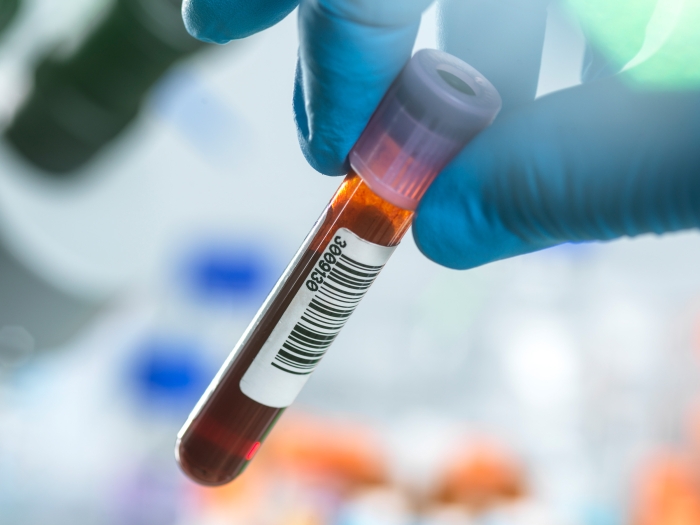Experts at Rogel Cancer Center develop and study the impact of a new drug for salivary gland cancers
10:05 AM
Author |

Experts at University of Michigan Health Rogel Cancer Center have conducted the first study evaluating the effectiveness of a targeted drug for patients with salivary gland cancers (SGC).
“There is an urgent need to develop treatments for these patients,” said Paul Swiecicki, M.D. “Otherwise healthy patients are stricken with this cancer, and we have no approved drugs to slow down the pace of their disease. Furthermore, given the rarity of the cancer, there are few if any clinical trials looking to develop drugs for this patient population.”
SGCs are rare tumors of the head and neck. They typically metastasize to the lungs and cause progressive difficulty in breathing, pain, fatigue, and ultimately death.
There are currently no approved treatments for recurrent and/or metastatic cases of SGCs. The most common type of SGC is adenoid cystic carcinoma (ACC), which when untreated increases in size within three months.
Treatments such as chemotherapy and immunotherapy have not been effective in significantly slowing down or shirking these cancers. The most commonly used treatment for these cancers only shrinks tumors in about 10% of patients, delays progression by around ten months, and has significant side effects like mouth sores and fatigue.
Often SGCs, especially ACC, have amplification of the MDM2 gene. In normal cells, this gene helps control the growth of cells by regulating levels of TP53, the so called ‘guardian of the genome’. One way that cancers grow out of control is by loss of TP53.
MDM2 inhibitors offer a method by which researchers can increase the amount of TP53 in cancer cells and hopefully help stop their uncontrolled growth. Previous laboratory research at Rogel showed that MDM2 inhibitors alone and in combination with chemotherapy stopped the growth of SGC, especially ACC, better than any previously tested agent.
Experts evaluated the safety and efficacy of APG-115, an oral MDM2 inhibitor developed at Rogel, in patients with TP53 wild type SPC, especially ACC.
Given the rarity of the cancer, there are few if any clinical trials looking to develop drugs for this patient population."
--Paul Swiecicki, M.D.
Collaborating with physicians at other cancer centers, the experts have found that the drug would be significantly effective in treating SGCs and had promising anti-tumor activity. Overall, 82% of participants in the study saw stabilization of their previously progressive cancers and progression was not seen for about 10 months.
Patients with ACC experienced the greatest benefits with 16% of patients having a significant decrease in the size of their tumor and 96% having stabilization.
“This trial is a testament to the teamwork and patient centered research at the Rogel Cancer Center. We were able to identify a molecular change that contributes to the growth of these rare cancers, create a targeted drug, and lead a multi-institutional investigator initiated clinical trial,” Swiecicki said.
“More importantly, the findings offer hope for a new effective treatment option for patients with ACC. We hope to see APG-115 move into further clinical trials and perhaps one day be the first approved treatment for this unrelenting disease.”
Sign up for Health Lab newsletters today. Get medical tips from top experts and learn about new scientific discoveries every week by subscribing to Health Lab’s two newsletters, Health & Wellness and Research & Innovation.
Sign up for the Health Lab Podcast: Add us on Spotify, Apple Podcasts or wherever you get you listen to your favorite shows.

Explore a variety of health care news & stories by visiting the Health Lab home page for more articles.

Department of Communication at Michigan Medicine

Want top health & research news weekly? Sign up for Health Lab’s newsletters today!





